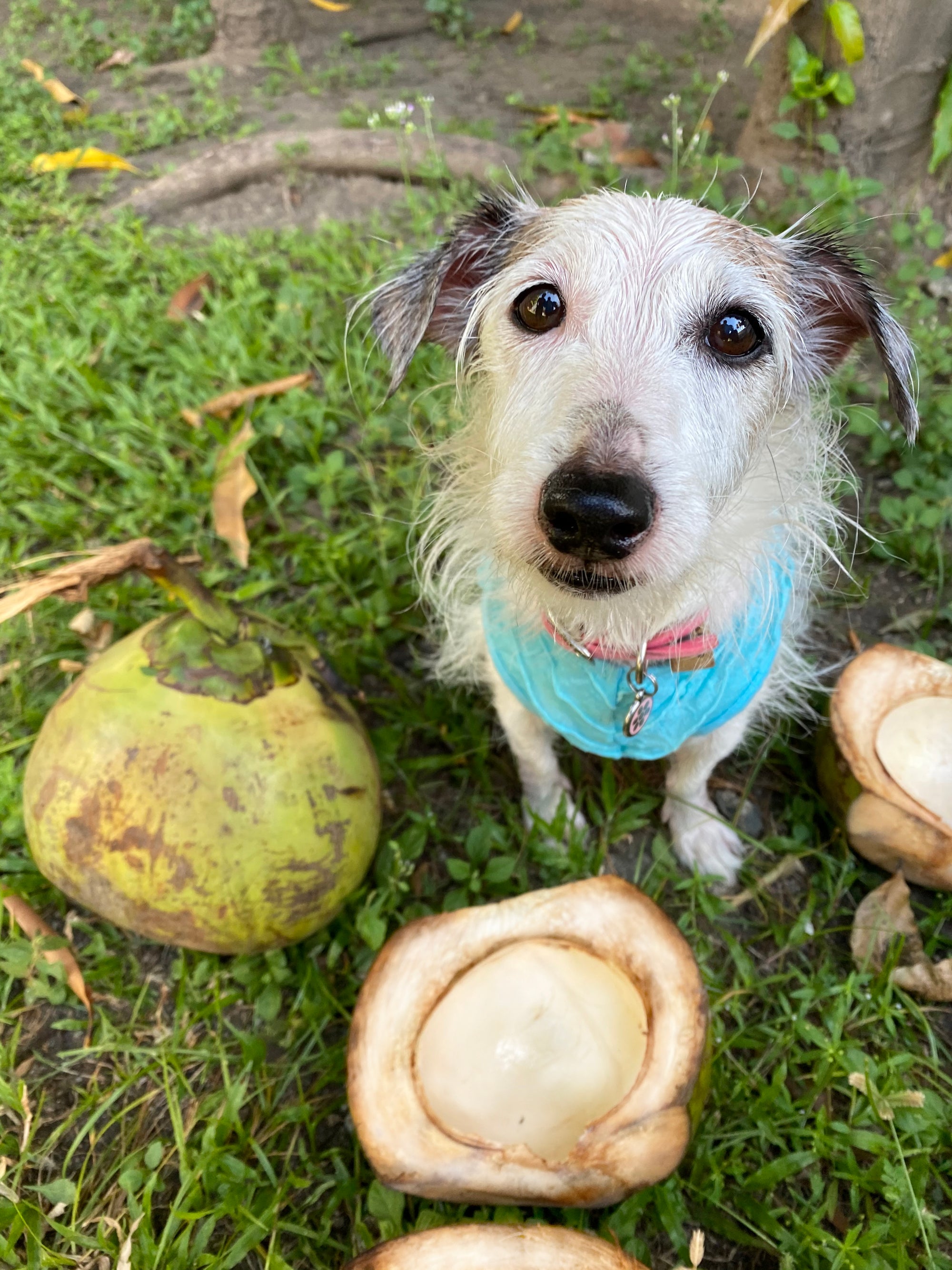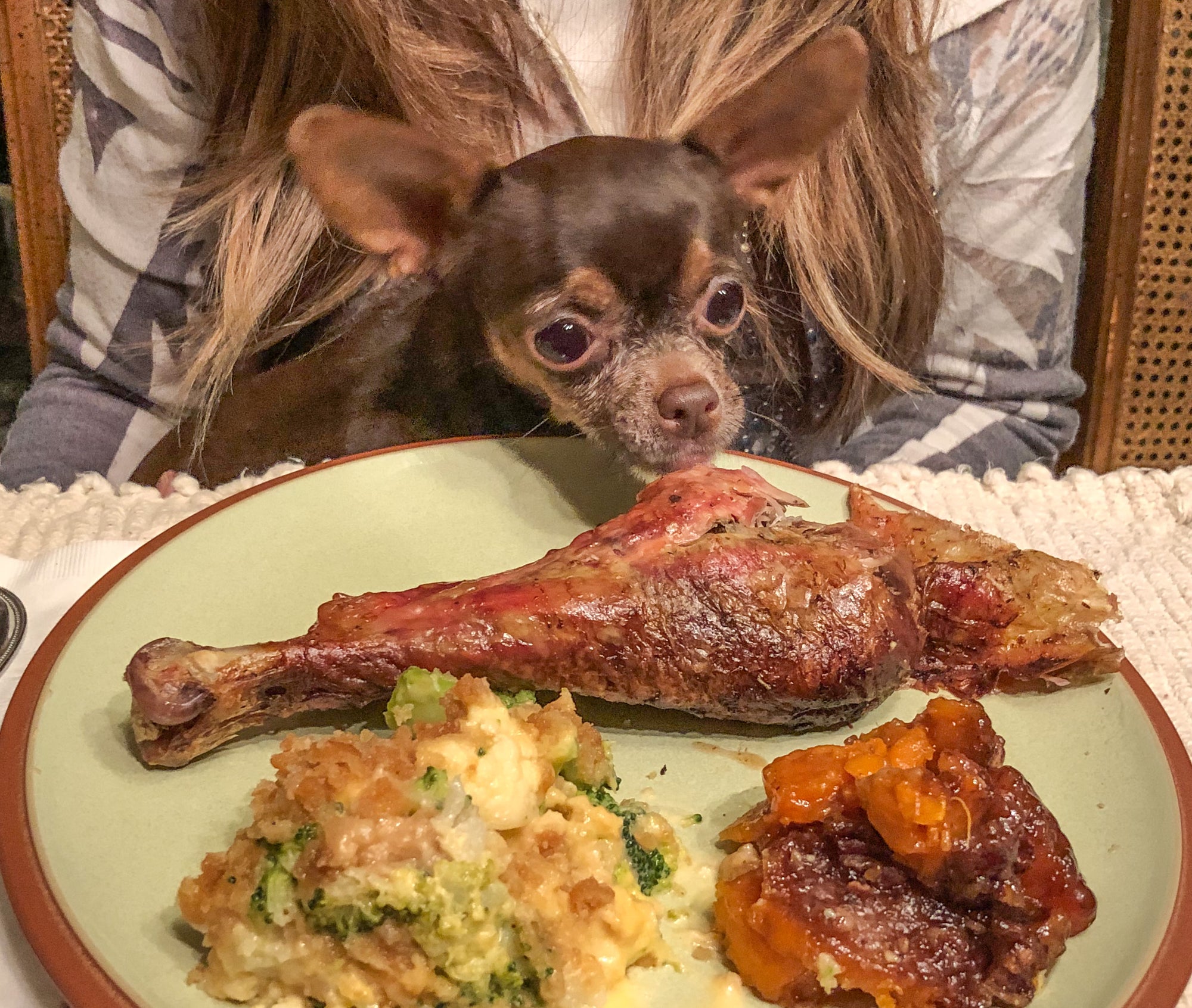The liver is a complex organ that performs numerous important functions. It filters the blood, metabolizes nutrients, removes toxins from the system, produces bile acids to aid digestion, secretes vital hormones, and much more!
When the liver is not functioning properly your dog can become ill. But the good news is that liver disease can often be treated and managed. In this post, we'll take a look at the causes, symptoms, diagnosis, and treatment of liver disease in dogs. We'll also explain how virgin coconut oil can help support a healthy liver.
What Causes Liver Disease in Dogs?
Liver disease is a broad term that describes any disorder that damages the liver and affects its function. In dogs, liver disease can be caused by a wide range of liver problems. These include liver cancer, infections of the liver, endocrine diseases such as Cushing's disease, and hepatotoxins (toxic chemical substances that cause damage to the liver). Liver disease in dogs may also be idiopathic. This means that it has no identifiable cause.

What Are the Symptoms of Liver Disease in Dogs?
Since the liver is responsible for so many important functions, symptoms of liver disease in dogs can vary widely. Liver disease in dogs can be broken down into 4 stages. In the first stage, the liver becomes inflamed and your dog may show symptoms such as vomiting, diarrhea, loss of appetite, weakness, and weight loss. The second stage of liver disease occurs when the liver begins to harden and scar in a process known as fibrosis. Aside from the symptoms above, you may notice polyuria (increased urination), polydipsia (increased thirst), jaundice, and ascites (fluid in the abdomen).
The third stage of liver disease is characterized by cirrhosis. This means that healthy liver tissue has been replaced by fibrous scar tissue. Finally, the fourth stage of liver disease is liver failure. Dogs with advanced liver disease (stages 3 and 4) will require immediate and ongoing treatment to manage their condition. They may display severe symptoms including seizures, blindness, and neurological problems. If liver function falls below 20%, the disease becomes terminal. Please visit your veterinarian immediately if your dog displays any potential signs of liver disease.
How Is Liver Disease in Dogs Diagnosed?
If liver disease is suspected, your veterinarian will run a series of tests to assess the function of your dog's liver. Some of the most common tests used to diagnose liver disease include blood and urine tests, ultrasounds, X-rays, and liver biopsies.
Elevated levels of alkaline phosphatase in the bloodstream is one indication of liver problems in dogs. In healthy dogs, alkaline phosphatase and other substances are continuously produced by the liver and then removed from the organ through the bile ducts.
In dogs with impaired liver function, the bile duct often becomes inflamed and blocked. This causes alkaline phosphatase and other substances to build up in the liver and eventually seep out into the bloodstream. Elevated alkaline phosphatase in dogs may therefore be diagnostic for a condition known as cholestatic liver disease which consists of the inflammation and destruction of the liver's bile ducts. Biliary stasis (bile sludging) may be seen on ultrasound.
How Is Liver Disease in Dogs Treated?
Treatment of liver disease in dogs depends on a number of factors. These include the cause, type, and stage of liver disease and the animal's overall health. Potential treatments include discontinuation of drugs that may have caused liver damage, medications to improve liver function, and dietary modifications to support liver health. Your dog may also need specialized treatments to address underlying conditions like Cushing's disease or diabetes. In addition, your veterinarian may prescribe medications such as antibiotics and anti-inflammatories to help manage your dog's symptoms.
Virgin Coconut Oil and Liver Health
Did you know that virgin coconut oil may actually help protect the liver and support the overall health of this vital organ? About two-thirds of the fats in coconut oil are medium-chain triglycerides (MCTs). When consumed, the body breaks down MCTs and utilizes medium-chain fatty acids (MCFAs) for their beneficial properties.
MCFAs are immediately transported from the digestive tract into the liver without needing biliary acids or bile to be broken down and digested. Therefore, MCFAs do not promote a sludgy bile duct or accumulation of alkaline phosphatase in the bloodstream.
MCFAs in coconut oil do not need pancreatic lipase for digestion. Instead, they travel through the portal vein directly to the liver, instead of through the blood or lymphatic system. The liver then metabolizes the MCFAs without the need for bile acids and releases it as energy. The conversion of MCFAs into energy is thought to benefit the liver by reducing its workload and preventing fat accumulation. In addition, coconut oil is not converted to chylomicrons, which means that it does not travel through the bloodstream. It does not cause hyperlipidemia (elevated fat in the blood) or accumulate in fatty adipose tissues. In fact, research has shown that coconut oil does not cause hyperlipidemia in animals.
Finally, MCFAs have antimicrobial properties that enable them to destroy harmful viruses which can attack the liver causing infection or hepatitis. In addition, they protect the liver from free radical damage and prevent tissue injury, enabling liver regeneration while supporting the immune system. And because coconut oil has anti-inflammatory properties it can help reduce the inflammation and swelling that's usually associated with fatty liver disease.
Wrapping Up
It's fine to give either virgin coconut oil or our MCT-3 oil for dogs with biliary issues, fat malabsorption issues, and dogs who need to be on a low-fat diet. Both virgin coconut oil and MCT-3 oil will not elevate blood lipid levels. In fact, coconut oil provides lipid/energy support to dogs that require a low-fat diet.
Although virgin coconut oil is a healthy saturated fat, it's important to feed it to your pet in moderation as part of a balanced, species-appropriate diet. As always, before giving any new treat or supplement, talk to your holistic veterinarian about incorporating coconut oil in your pet's diet. We also recommend feeding a small amount of coconut oil to begin with and increasing the dosage gradually.
Some pets may need a while for their digestive systems to adapt, especially if they are not used to much fat in their diet. For more information about using coconut oil with your pet, check out our previous article.



